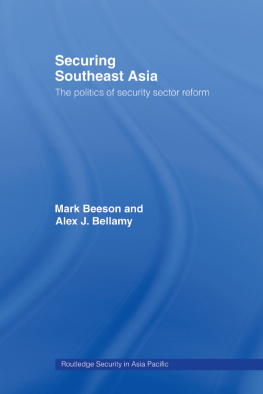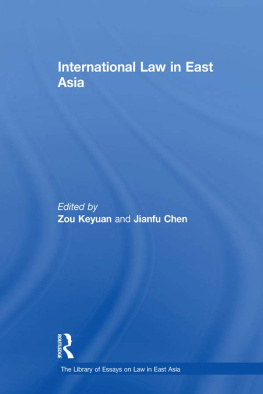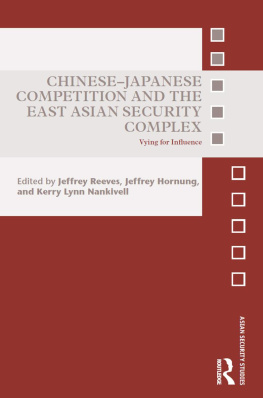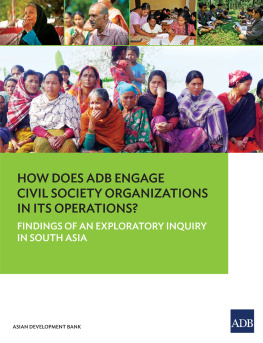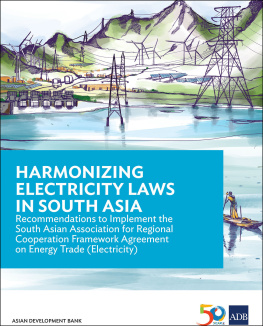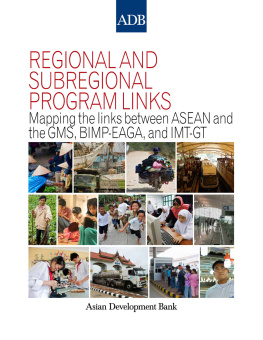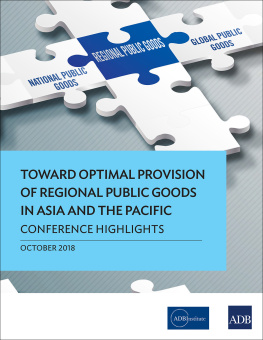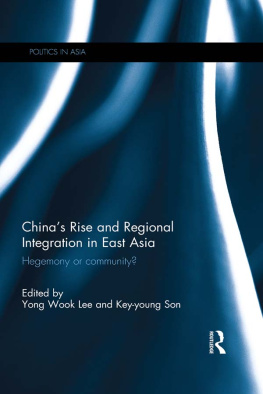RECONFIGURING EAST ASIA
REGIONAL INSTITUTIONS AND ORGANISATIONS AFTER THE CRISIS
RECONFIGURING EAST ASIA
REGIONAL INSTITUTIONS AND ORGANISATIONS AFTER THE CRISIS
Edited by
Mark Beeson
First published 2002 by RoutledgeCurzon
This edition published 2013 by Routledge
2 Park Square, Milton Park, Abingdon, Oxon OX14 4RN
711 Third Avenue, New York, NY 10017
Routledge is an imprint of the Taylor & Francis Group, an informa business
Typeset in Sabon by LaserScript Ltd, Mitcham, Surrey
All rights reserved. No part of this book may be reprinted or reproduced or utilised in any form or by any electronic, mechanical, or other means, now known or hereafter invented, including photocopying and recording, or in any information storage or retrieval system, without permission in writing from the publishers.
British Library Cataloguing in Publication Data
A catalogue record of this book is available from the British Library
Library of Congress Cataloguing in Publication Data
A catalogue record for this book has been requested
ISBN 0-7007-1477-4 (Hbk)
ISBN 0-7007-1478-2 (Pbk)
Contents
Mark Beeson
S. Javed Maswood
Nicola Bullard
Garry Rodan
Mukul G. Asher
Kanishka Jayasuriya
Patricia Ranald
Mark Beeson and Leong Liew
Cameron J. Hill and William T. Tow
Mark Beeson
Edward J. Lincoln
John Ravenhill
Mark Beeson
Mukul Asher, Professor, School of Public Administration, National University of Singapore.
Mark Beeson, Senior Lecturer, School of Political Science and International Studies, the University of Queensland, Brisbane, Australia.
Nicola Bullard, Deputy Director, Focus on the Global South, Bangkok, Thailand.
Cameron Hill, PhD candidate in the School of Political Science and International Studies, the University of Queensland, Brisbane, Australia.
Kanishka Jayasuriya, Senior Research Fellow, Southeast Asia Research Centre, City University of Hong Kong.
Edward J. Lincoln, Senior Fellow at the Brookings Institution, Washington DC, USA.
Leong Liew, Associate Professor in the School of International Business, Griffith University, Brisbane, Australia.
Javed Maswood, Senior Lecturer in the School of International Business, Griffith University, Brisbane, Australia.
Patricia Ranald manages research and policy at the Public Interest Advocacy Centre, Sydney.
John Ravenhill, Professor of Politics at the University of Edinburgh, Scotland.
Garry Rodan, Associate Professor in Politics and International Studies, Murdoch University, Perth, Western Australia.
William T. Tow, Professor of International Relations in the School of Political Science and International Studies, the University of Queensland, Brisbane, Australia.
Like all collaborative projects, this book would not have been possible without the assistance of friends and colleagues. In addition to the original workshop participants whose chapters appear here, a number of other people deserve particular mention and thanks.
Russell Trood in his capacity as head of The Centre for the Study of AustraliaAsia Relations (CSAAR), provided the initial encouragement and just as importantly financial support, for this project. Additional financial support was provided by the Griffith Asia Pacific Council, and the Australian Key Centre for Cultural and Media Policy.
Painstaking editorial and technical assistance was provided by Maureen Todhunter and Robyn White respectively. The original workshop from which this collection emerged was an enjoyable and painless affair thanks to the energy and organisational prowess of Katherine Myres.
The encouragement and prompt attention of Peter Sowden of Curzon Press throughout the project, and his forbearance in the face of unavoidable delays was greatly appreciated.
Finally, thanks to Amitav Acharya, Stephen Bell, Bill Case, Bob Elson, and Ian Holliday, whose comments and contributions added greatly to the entire enterprise.
ADB | Asian Development Bank |
ADBI | Asian Development Bank Institute |
ADF | Asian Development Fund |
AfDB | African Development Bank |
AFTA | ASEAN Free Trade Area |
AMF | Asian Monetary Fund |
APEC | Asia Pacific Economic Cooperation |
APRO | Asia Pacific Regional Organisation |
ARF | ASEAN Regional Forum |
ARF | ASEAN Regional Forum |
ASEAN PMC | ASEAN Post-Ministerial Conference |
ASEAN | Association of Southeast Asian Nations |
ASEM | Asia Europe Meeting |
AWSJ | Asian Wall Street Journal |
BIBF | Bangkok Inter Bank Facility |
BIS | Bank for International Settlements |
CCP | Chinese Communist Party |
CEO | chief executive officer |
CER | Closer Economic Relations Trade Agreement |
CMD | confidence building measures |
CNA | Channel News Asia |
CPC | Communist Party of China |
CPF | Central Provident Fund |
CPFIS | CPF Investment Scheme |
CSCAP | Council for Security Cooperation in Asia Pacific |
CTI | Corporate Transparency Index |
EAEC | East Asian Economic Caucus |
EASR | East Asia Strategy Report |
ECAFE | Economic Commission for Asia and the Far East |
ELIPS | Economic Law and Improved Procurement Systems |
EPF | Employees Provident Fund |
EPG | Eminent Persons Group |
EU | European Union |
EVSL | early voluntary sectoral liberalisation |
FDI | foreign direct investment |
FEER | Far Eastern Economic Review |
FKTU | Federation of Korean Trade Unions |
GDP | gross domestic product |
GLC | government-linked companies |
GPF | Government Pension Fund |


